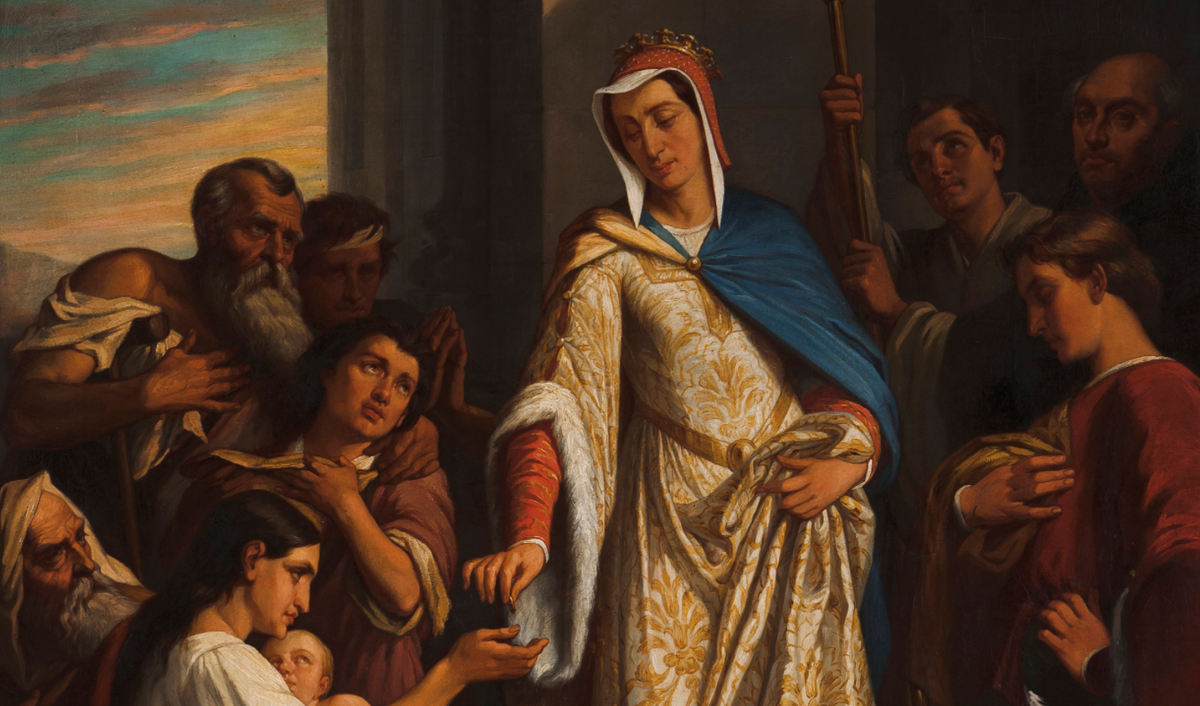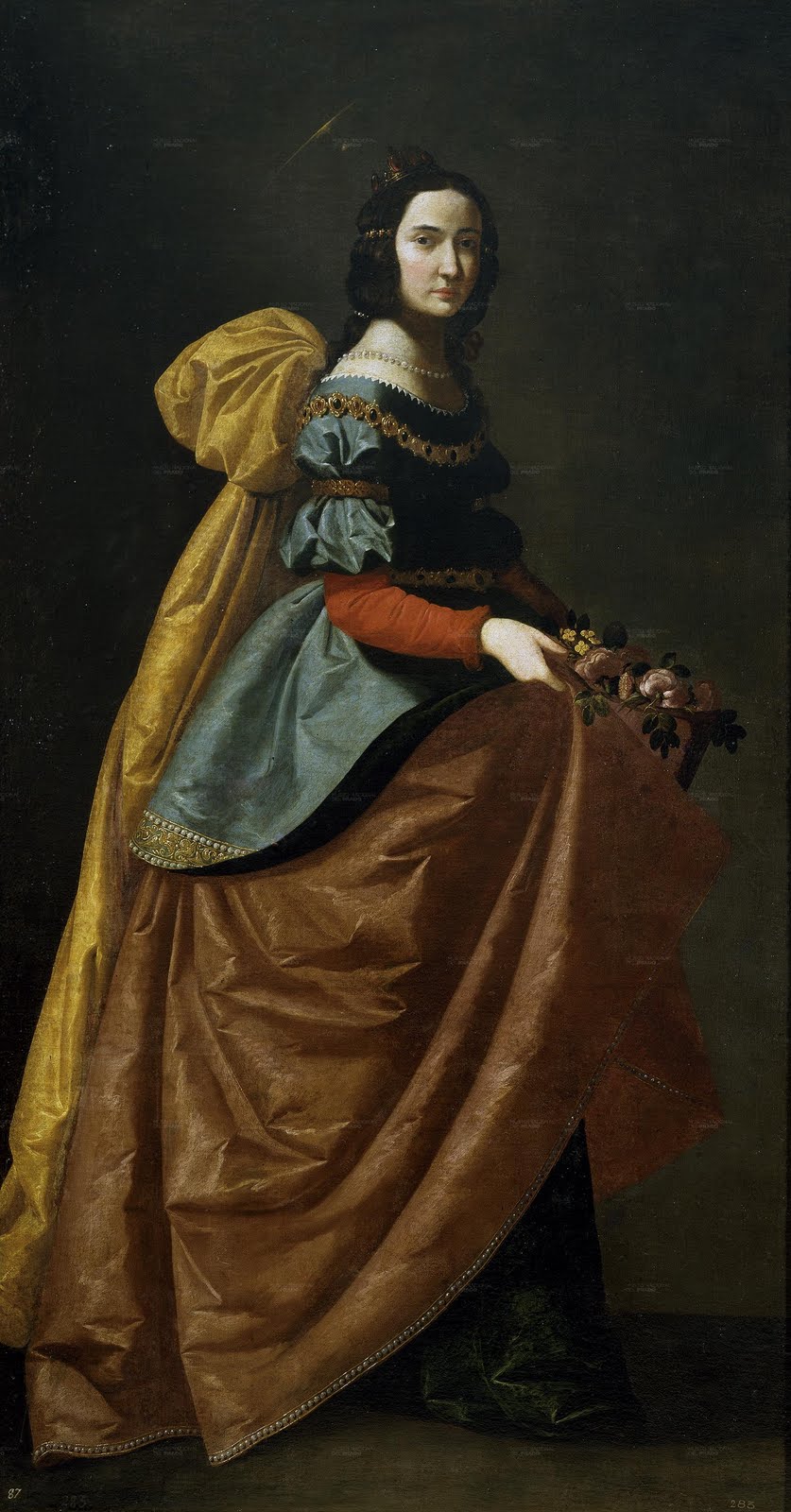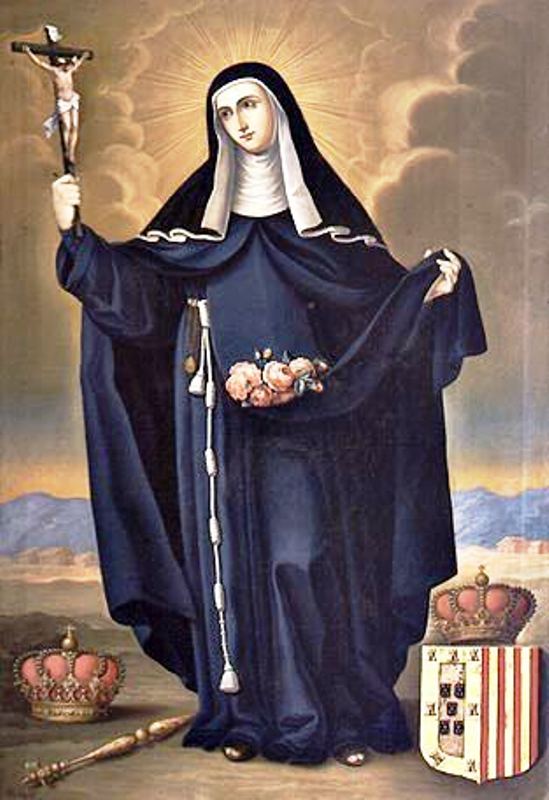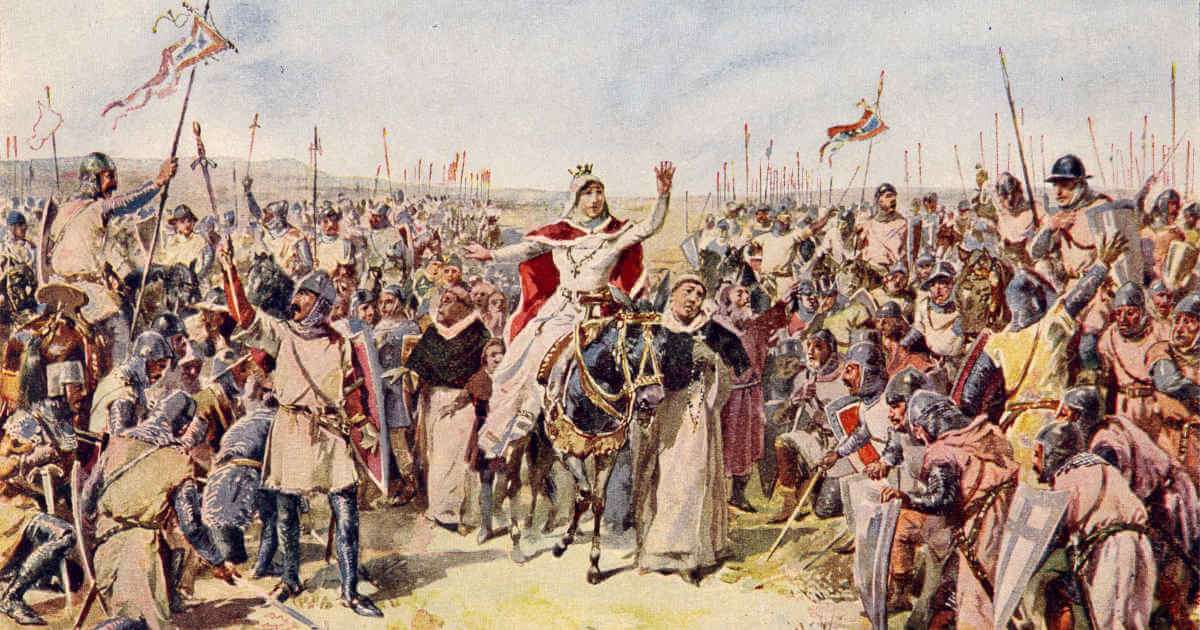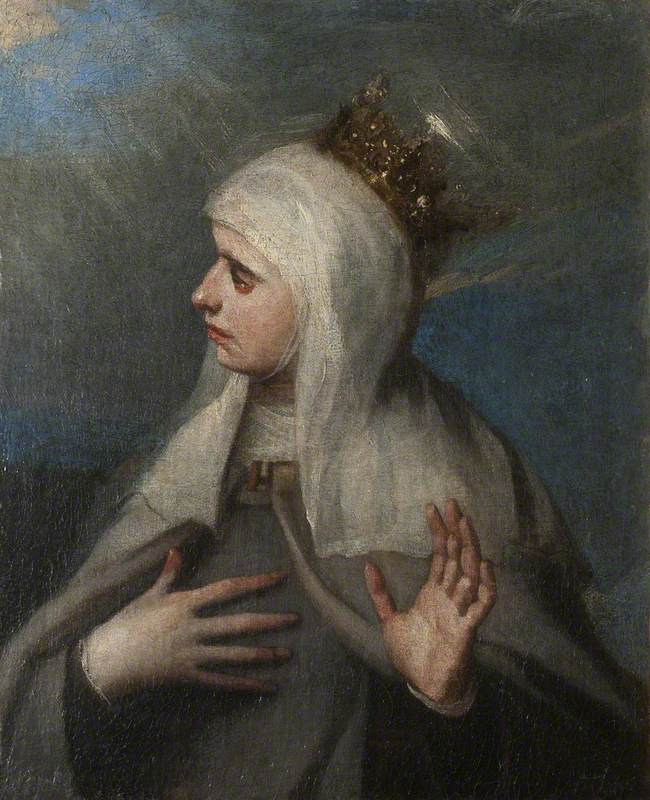“God made me queen so that I may serve others.”
Elizabeth was born in 1271 into the royal house of Aragon, as the daughter of Infante Peter and his wife Constance of Sicily. She was named after her great-aunt, Saint Elizabeth of Hungary (https://real-heroes.org/saint-elizabeth-of-hungary/).
She learned self-discipline, was educated very piously, and led a life of strict regularity saying the Divine Office daily, attending daily Mass, fasting, and performing other penances.
At the age of 11 she was arranged to marry King Denis of Portugal but was not wed until 7 years later. She received several towns as part of her marriage dowry.
Her husband, the king, was a poet and statesman, known as the Farmer King, because he planted a large pine forest to prevent soil degradation that threatened the region. They had 2 children together but unfortunately; he was not faithful to her.
Elizabeth quietly pursued the regular religious practices of her youth and was devoted to the poor and sick. Many around her disapproved and caused ill will. Eventually, her prayer and patience succeeded, and her husband converted to the faith as he had continued to lead a sinful life of adultery.
During the great famine, she donated the flour from her cellars to the starving. She also provided lodging for pilgrims, paying the dowries of poor girls, and educating the children of the poor as she could. She was also known for being modest in dress and humble in conversation.
In addition, she was the benefactor of various hospitals and religious projects such as the Trinity Convent in Lisbon.
She took an interest in politics, made the decisive decision during negotiations, and was an intermediary during the Civil War of 1322.
After the King’s death, she retired to the monastery of the Poor Clare nuns. She joined the Third Order of Saint Francis, devoting the rest of her life to the poor and sick while trying to remain unknown.
Once again, at the age of 65, she was called upon to act as peacemaker between Afonso IV and King Alfonso XI. In spite of age and weakness, she hurried to stop the fight and brought about terms of peace. The exertion brought on her final illness and when her mission was completed, she took to her bed with a fever from which she died on July 4, 1336.
She earned the title of Peacemaker on account of her efficacy in resolving disputes.
She is the patron saint of the Third Order of Saint Francis
Her feast day is July 4.
For God’s Glory.
